South Africa
South African President Cyril Ramaphosa will open a new parliamentary term on Thursday to mark the official start of his 11-party coalition government, an uneasy union held together following a historic election result.
In his speech, Mr Ramaphosa will likely outline the new government’s priorities, which became clear after his once-dominant African National Congress party lost its parliamentary majority for the first time in elections on 29 May. Voters, driven by anger over sky-high levels of unemployment and inequality and the failing state of many basic public services, gave the ANC its worst result in a national election.
In the biggest shift in South African politics since the end of apartheid in 1994, the long-ruling ANC won just 40% of the vote and no party won a majority. The ANC was forced to share power with other parties for the first time in South Africa's 30 years of democracy, including the main opposition, the Democratic Alliance.
That means Mr Ramaphosa will also face a new opposition on Thursday. It is led by former South African president and ANC leader Jacob Zuma, as well as a judge dismissed by Mr Ramaphosa in March for serious misconduct.
Zuma's newly founded MK party surprisingly won the third largest share of the vote in its first election and was officially recognised by parliament's rules committee this week as the official opposition as the largest party not in the governing coalition.
Zuma, a controversial figure who was forced to resign as president in 2018 following corruption allegations, has turned against the ANC and become the fiercest critic of Ramaphosa, who was once Zuma's deputy president.
Zuma made MK a significant political force almost overnight due to his enduring popularity in parts of the country, although he was disqualified from serving as a lawmaker for five years in 2022 due to a conviction and short prison sentence he served for contempt of court for refusing to testify at an inquiry into government corruption.
With Zuma unable to sit in parliament, his party appointed former high court judge John Hlophe as its leader in the legislature. The high court judge was impeached by parliament and fired by Ramaphosa for trying to influence other judges in a case involving a corruption investigation into Zuma.
Mr Ramaphosa’s coalition government is made up of 11 parties, seven of which are represented in his new cabinet. He faces a daunting challenge: reviving South Africa, which has some of the highest rates of unemployment, inequality and violent crime in the world, even though it is the most industrialised economy on the African continent.
Mr Ramaphosa and other leaders of the new coalition say it represents a new era of political unity and hope for the country of 62 million people.



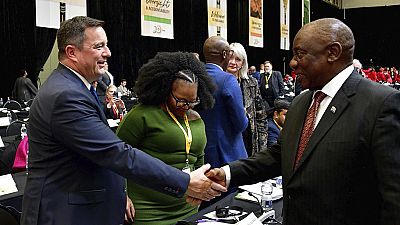

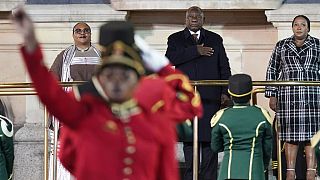
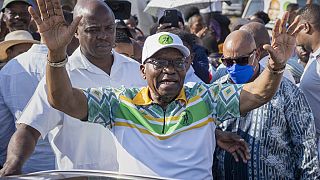
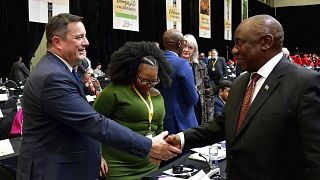

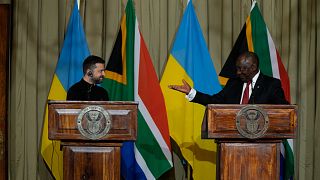
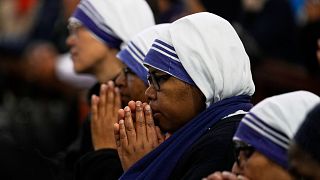


00:54
Zelenskyy Cuts South Africa Visit Short After Deadly Strikes on Kyiv
Go to video
Unprecedented trial for apartheid atrocities opens in South Africa
Go to video
South Africa's tax row heads to court as implementation date nears
00:58
Senegal: MP Proposes High Treason Charges Against Former President Macky Sall
Go to video
South Africa appoints Mcebisi Jonas as special US envoy in bid to ease tensions
Go to video
Somalia launches national voter registration campaign